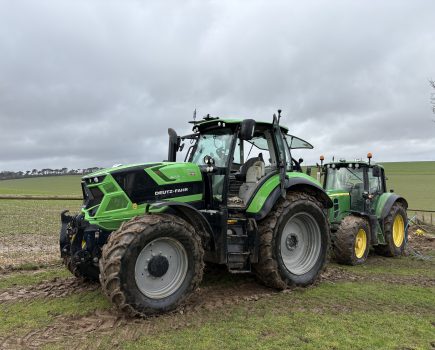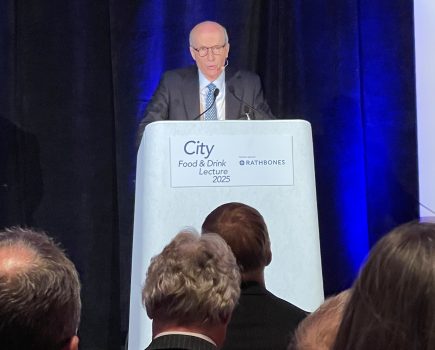PM Rishi Sunak interviewed tech billionaire Elon Musk at the recent UK artificial intelligence (AI) conference. During the interview, Musk predicted that AI will be “smarter than the smartest human” and that “there will come a point where no job will be necessary” as AI will do everything for us.
Well, I’m not sure how much farming Mr Musk has done, but I have serious doubts that AI will ever come to replace human farmers completely.
That conviction was cemented during a conversation I had at a recent farming awards dinner. A fellow guest told me about the robots he had installed on his dairy farm. At first all was wonderful, as he no longer needed to stir from his bed at 5am to milk the cows. Nor did he have to head off to the milking parlour at 5pm each evening to go through the drudge of evening milking.
But, since then, a terrible new reality has dawned on his farm. Instead of being a slave to his cows for twice a day milking he is now ‘on call’ to robots 24 hours a day.
Every time there is a technical hitch in the parlour, which is often, he has to attend to it. Even relatively simple things like milking clusters becoming twisted is enough to get him out of bed as the robots sound an alarm to his mobile phone. Indeed, his sleep pattern is so horribly broken that he’s questioning his future in dairy farming, despite such a recent heavy investment in tech.
Just as time consuming, he told me, is that because he doesn’t see the cows twice a day at milking, he has to be extremely attentive to the records that the robots send to his computer each day. Rather than spot a cow that is looking lacklustre when he brings her in from the field or sees her walk into the milking parlour, he now has to deduce any health problems from the cold data, like milk quality or food intakes, that is sent to his computer.
But perhaps arable farming lends itself more readily to AI than livestock production? Machinery and plants are certainly more predictable than livestock in terms of any problems that might arise and how they might be sorted out.
We’ve seen considerable positive advances in precision arable farming techniques, including satellite steering for tractors and onboard computers on combine harvesters providing ‘yield’ maps etc. But, that said, it does seem that the days of driver-free tractors are a long way off, let alone a robot that can repair another robot that has malfunctioned.
Sadly, then, Mr Musk’s prediction of a future in which arable farmers will be able to relax in front of their TVs or spend their days immersed in virtual reality games while AI runs their farms seems a distant or even impossible goal.
That said, dear reader, my views on this topic come with a warning: I come from a long line of those who made confident but hopelessly incorrect predictions about the possibilities of human technological advance. As my great-grandfather once stated: ‘They will make a carriage go without a horse one day, but they will never put a man on the moon.”







